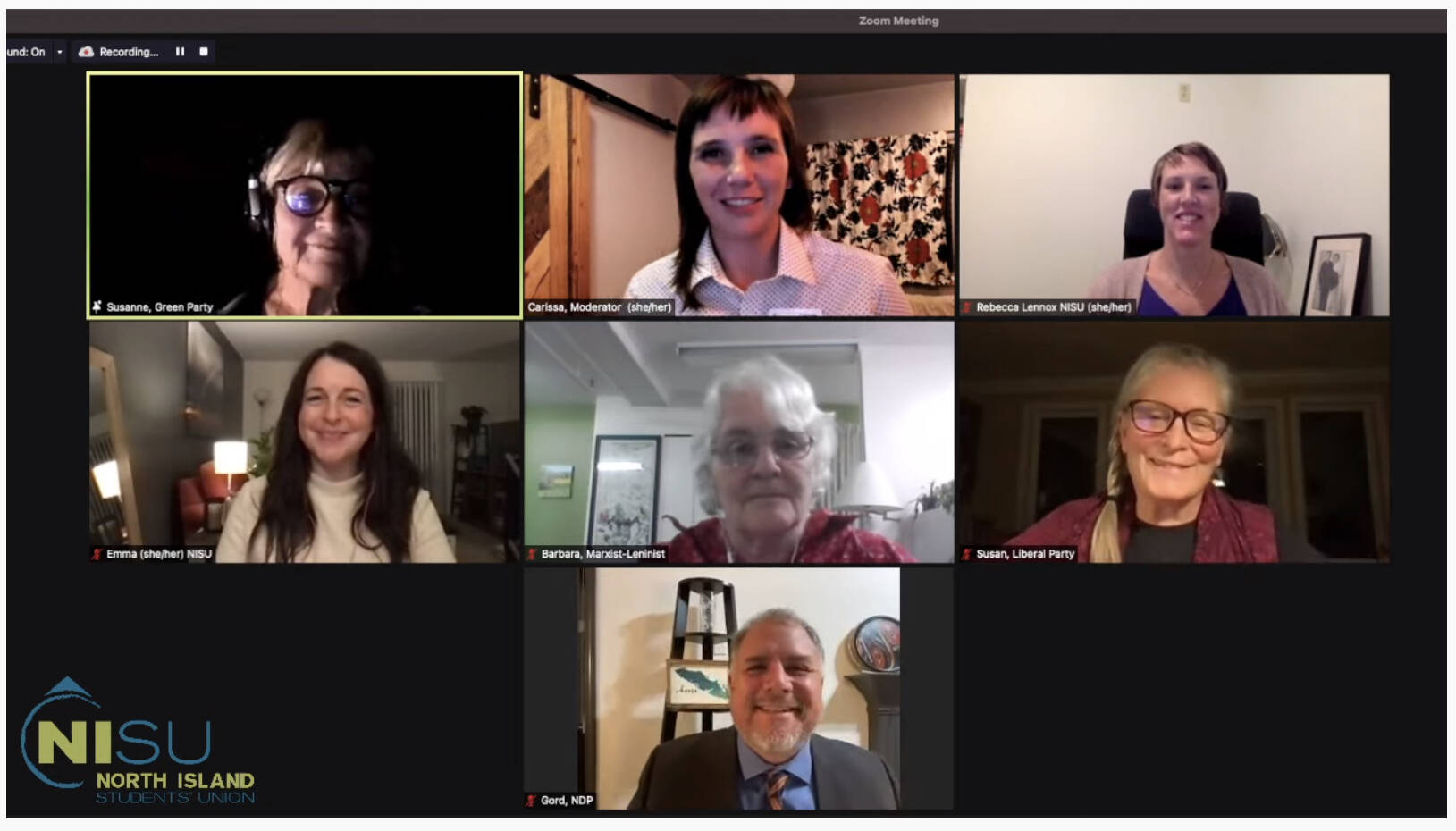Candidates for the 2021 federal election talked about some of the issues facing Courtenay-Alberni students during an all-candidates meeting hosted by the North Island Students Union.
The four candidates who attended the Thursday, Sept. 16 virtual meeting agreed that students are facing a number of barriers, from affordability to uncertainty about the future. Students need hope, said Marxist-Leninist candidate Barb Biley, and all four candidates offered hope for the future.
READ MORE: Full election coverage can be found here
All candidates pledged that their parties would eliminate federal student loan interest, while Biley committed to free post-secondary education.
NDP candidate Gord Johns said the NDP plans to deal with issues of affordability—from housing to health care to education—by taxing the ultra rich.
“We can pay for it,” said Johns. “We’re going to tax the ultra rich and ensure they pay their fair share.”
Liberal candidate Susan Farlinger said that the Liberal government has already started the process of legislating Pharmacare and plans to hire 1,200 new counsellors for colleges and universities. The Liberals have also committed to building 1.4 million new houses in the next four years to increase housing stock around the country and introduce a pause of foreign homeownership.
“That’s not going to solve all our problems, but it is part of a solution,” said Farlinger.
Green Party candidate Susanne Lawson said she would like to see funds redirected from national corporations to support youth and students.
“They are the ones that are inheriting this future and they must have incredible stress,” said Lawson. “They are the most important reason I am running in this election.”
Another major topic during Thursday’s debate was the issue of climate change and a transition to sustainable work practices. Johns criticized the Liberal government’s decision to buy the Trans Mountain pipeline in 2018.
“The climate emergency isn’t being treated like an emergency,” Johns said. “Building pipelines right now doesn’t make any sense whatsoever.” He reiterated the NDP’s commitment to cut carbon emissions by 50 percent by 2030.
Biley agreed that major decisions are being made without consulting coastal and Indigenous communities.
“Our coast, our decision,” she said. “Right now everything is in the hands of the monopolies without regards for consequences to workers and communities.”
Farlinger said the Liberals have looked at the climate crisis from a “comprehensive” point of view and have committed Canada to net zero emissions by 2050.
Lawson talked about her own experience living off-grid for many years and said she would like to see homes and businesses across the country retrofitted so that people no longer have to live on oil and gas.
“There are so many technologies that are available to us now,” she said. “We’re going to have to transition.”
Other topics of conversation included health care, Indigenous issues and fishing. Moderator Carissa Wilson presented questions to each of the candidates that had been prepared by NISU and submitted by the public.
All candidates were invited to the meeting, but only four of six attended. Mary Lee (Conservatives) and Robert Eppich (PPC) declined to join.
The meeting took place virtually over Zoom and was livestreamed on the NISU’s YouTube page, where it can still be viewed.
elena.rardon@albernivalleynews.comLike us on Facebook and follow us on Twitter

